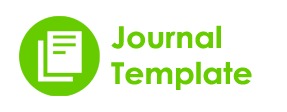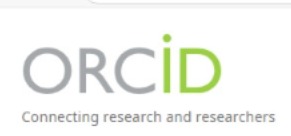The Transformation Of Islamic Religious Education In The Face Of Religious Moderation In The Digital Era
DOI:
https://doi.org/10.63889/pedagogy.v18i1.308Keywords:
islamic education, transformation, religious, moderation, digital eraAbstract
The transformation of Islamic religious education is an urgent need in the digital era marked by the rapid flow of information and social change. The presence of digital technology opens up new opportunities for the learning process, but it also brings challenges, especially in maintaining moderate Islamic values. Islamic religious education is no longer only oriented to the transfer of knowledge, but must also be able to form the character of students who are tolerant, inclusive, and adaptive to diversity, in line with the principles of religious moderation. However, many previous studies have focused on aspects of the curriculum or conventional methods without highlighting in depth how to integrate the values of moderation in Islamic education practices in the digital realm. There is a gap between the theory of religious moderation and its application in the digital-based education system, especially in the context of Islamic education in Indonesia. Therefore, the formulation of the problem in this study is: how to transform Islamic religious education in facing the challenges of religious moderation in the current digital era. This research uses a qualitative approach with literature study methods and case studies on several Islamic educational institutions that have implemented moderation-based learning digitization programs. The results of this study are expected to make a practical contribution to the development of Islamic education models that are relevant to the digital era and theoretically enrich the literature on the integration of moderation values in religious education. These findings are also the basis for policy recommendations for educational institutions and related policymakers.
References
[1] Verdinandus Lelu Ngongo; Taufiq Hidayat; Wiyanto, “Pendidikan Diera Digital,” High. Educ. Digit. Age, pp. 628–638, 2013, https://doi.org/10.1515/9781400866137.
[2] L. Hakim, “Transformasi Pendidikan Agama Islam : Strategi Dan Adaptasi Pada Era Revolusi Industri 4 . 0,” J. Educ. Dev., vol. 9, no. 4, pp. 760–766, 2021.
[3] J. P. Sari, J. Setio, R. Satria, F. Oviyanti, and M. Maryamah, “Tantangan Madrasah Di Era
Digital: Transformasi Pendidikan Agama Islam Dalam Konteks Teknologi,” J. Mudarrisuna Media Kaji. Pendidik. Agama Islam, vol. 14, no. 2, p. 211, 2024, https://doi.org/10.22373/jm.v14i2.23489.
[4] A. M. Alfi, A. Febriasari, and J. N. Azka, “Transformasi Pendidikan Agama Islam Melalui Teknologi,” J. Relig. J. Agama, Sos. dan Budaya, vol. 1, no. 4, pp. 511–522, 2023.
[5] Iswati, “Transformasi Pendidikan Agama Islam Dalam Membangun Nilai Karakter Peserta Didik Yang Humanis Religius,” J. Pendidik. Islam Al I’tibar, vol. 3, no. 1, pp. 41–55, 2017.
[6] A. Aziz and K. Anam, “Moderasi Beragama Berlandaskan Nilai-nilai Islam,” Direktorat Jenderal Pendidik. Islam Kementeri. Agama RI, p. 131, 2021.
[7] M. Hayati et al., “Transformasi Pendidikan Agama Islam di Era Digital: Perspektif Sosial dan Tantangan Kontemporer,” Concept J. Soc. Humanit. Educ., vol. 2, no. 4, pp. 224–235, 2023, https://doi.org/10.55606/concept.v2i4.797.
[8] A. Zakariyah and A. Hamid, “Kolaborasi Peran Orang Tua dan Guru dalam Pembelajaran Pendidikan Agama Islam Berbasis Online di Rumah,” Intizar, vol. 26, no. 1, pp. 17–26, 2020, https://doi.org/10.19109/intizar.v26i1.5892.
[9] U. UMAR, “Strategi Dakwah Kultural Muhammadiyah pada Ritual Adat Mappogau Hanua Masyarakat Karampuang Sinjai,” Afkaruna Indones. Interdiscip. J. Islam. Stud., vol. 13, no. 2, 2017, https://doi.org/10.18196/AIIJIS.2017.0073.204-239.
[10] C. A. Sholehah and P. Rachman, “Dinamika Transformasi Pendidikan Agama Islam: Sinergitas Artificial Intelligence Dalam Peningkatan Pemahaman Keagamaan,” BAHTSUNA J. Penelit. Pendidik. Islam, vol. 5, no. 2, pp. 169–177, 2023, https://doi.org/10.55210/bahtsuna.v5i2.317.
[11] W. Hefni, “Moderasi Beragama dalam Ruang Digital: Studi Pengarusutamaan Moderasi Beragama di Perguruan Tinggi Keagamaan Islam Negeri,” J. Bimas Islam, vol. 13, no. 1, pp. 1–22, 2020, https://doi.org/10.37302/jbi.v13i1.182.
[12] M. Y. Balaka, “Metode penelitian Kuantitatif,” Metodol. Penelit. Pendidik. Kualitatif, vol. 1, p. 130, 2022.
[13] N. Hasnunidah, “Metodologi Penelitian Pendidikan,” Media Akad., p. 117, 2017.
[14] Tukatman et al., Metodologi Penelitian. 2023.
[15] H. N. L. S, “Metode Penelitian Kuantitatif,” Kaji. Teor. Kerangka Konsep Dan Hlpotesls Dalam Penelltl an, no. June, pp. 1–20, 2018.
[16] Mohamad Munawar, “Internalisasi Nilai-Nilai Moderasi Beragama Berbasis Al-Qur’an Bagi Mahasiswa Stai Muhammadiyah Blora,” vol. 17, no. April, pp. 118–127, 2024.
[17] Sindi Septia Hasnida, Ridho Adrian, and Nico Aditia Siagian, “Tranformasi Pendidikan Di Era Digital,” J. Bintang Pendidik. Indones., vol. 2, no. 1, pp. 110–116, Dec. 2023, https://doi.org/10.55606/jubpi.v2i1.2488.
[18] A. Nurhartanto, S. Anwar, and S. Sukisno, “Development of Pluralist and Multicultural Approaches In PAI Learning: A Conceptual Model For Strengthening Students’ Inclusivity Competencies,” Multicult. Islam. Educ. Rev., vol. 2, no. 2, pp. 154–163, Apr. 2025, https://doi.org/10.23917/mier.v2i2.7307.
[19] M. D. N. K. I. S. M. Jenuri, “Transformasi Pendidikan Agama Islam dalam Membangun Karakter Mahasiswa Generasi Alpha,” J. Pendidik. dan Konseling, vol. 4, pp. 1349–1358, 2022.
[20] D. S. Dalimunthe, “Transformasi Pendidikan Agama Islam: Memperkuat Nilai-nilai Spiritual, Etika, dan Pemahaman Keislaman dalam Konteks Modern,” Al-Murabbi J. Pendidik. Islam, vol. 1, no. 1, pp. 75–96, 2023, https://doi.org/10.62086/al-murabbi.v1i1.426.
[21] M. Muaz and U. Ruswandi, “Moderasi Beragama dalam Pendidikan Islam,” JIIP - J. Ilm. Ilmu Pendidik., vol. 5, no. 8, pp. 3194–3203, 2022, https://doi.org/10.54371/jiip.v5i8.820.
[22] S. Anwar, “Metode Dan Strategi Pengembangan Moderasi Beragama Di Lembaga Pendidikan,” J. Pedagog., vol. 20, pp. 1–20, 2022.
[23] N. H. N. Muhamad, M. F. M. Sahid, M. K. Kamaruddin, and K. A. Karim, “Zakat Distribution to Fi Sabilillah Asnaf in Higher Education Institutions: Universiti Teknologi Malaysia Experience,” Int. J. Acad. Res. Bus. Soc. Sci., vol. 8, no. 9, pp. 138–149, 2018, https://doi.org/10.6007/IJARBSS/v8-i9/4580.
[24] E. Tarihoran, “Guru Dalam Pengajaran Abad 21,” SAPA - J. Kateketik dan Pastor., vol. 4, no. 1, pp. 46–58, May 2019, https://doi.org/10.53544/sapa.v4i1.68.
[25] M. LUBIS, “Peran Guru Pada Era Pendidikan 4.0,” EDUKA J. Pendidikan, Hukum, Dan Bisnis, vol. 4, no. 2, pp. 0–5, 2020, https://doi.org/10.32493/eduka.v4i2.4264.
[26] S. Nur’aini, “Moderasi Beragama dalam Pendidikan Islam,” Pancawahana J. Stud. Islam, vol. 16, p. 2, 2021, https://doi.org/10.62808/al-khos.v2i2.22.
[27] R. Awaliati, “Tantangan Guru Indonesia Pada Abad 21,” Univ. Lambung Mangkurat Banjarmasin, vol. 21, pp. 1–6, 2022, https://doi.org/10.31237/osf.io/3qu7b.
[28] N. Afif, “Pengajaran dan Pembelajaran di Era Digital,” IQ (Ilmu Al-qur’an) J. Pendidik. Islam, vol. 2, no. 01, pp. 117–129, Jan. 1970, https://doi.org/10.37542/iq.v2i01.28.
[29] T. Angraini, L. N. S. Saragi, M. Jannah, and M. Sopian, “Perubahan Paradigma Peran Guru Dalam Pembelajaran Era Digital,” Pros. Semin. Nas. 20 Progr. Pascasarj. Univ. PGRI Palembang 25 Novemb. 2017, no. November, pp. 188–192, 2017.
[30] Rikha Rahmiyati Dhani, “Peran Guru Dalam Pengembangan Kurikulum,” Kaos GL Derg., vol. 8, no. 75, pp. 147–154, Nov. 2010, https://doi.org/10.1088/1751-8113/44/8/085201.
[31] S. Nur’aini, “Pendidikan Membangun Sumber Daya Manusia Smart,” J. Pedagog., vol. 7, pp. 1–12, 2017.
[32] Rina Murtyaningsih, “Peranan Guru dalam Memotivasi Belajar Siswa,” J. Pedagog., vol. 10, no. 2, 2017.
[33] I. Efendi, S. Murhayati, and Z. Zaitun, “Model Inovasi Pengembangan Kurikulum Merdeka,” At-Tajdid J. Islam. Stud., vol. 2, no. 4, p. 196, Oct. 2022, https://doi.org/10.24014/attajdid.v2i4.20043.
[34] S. Anwar, “Dialektika Metode Studi Islam (Tela ’ Ah Aliran Islamization of Knowledge Dan Scientification Of Islam),” J. Ilm. Pedagog., vol. 8, 2017.
[35] T. Setyo, R. Murtyaningsih, and S. A. Setiawan, “Reconstruction Of Islamic Education Goals
In The Modern Era Perspectives Of Western Classical Philosophers And Muslim Philosophers,” vol. 17, no. 2, 2024.
[36] E. Sutrisno, “Aktualisasi Moderasi Beragama di Lembaga Pendidikan,” J. Bimas Islam, vol. 12, no. 2, pp. 323–348, 2019, https://doi.org/10.37302/jbi.v12i2.113.
[37] M. Mukhibat, A. Nurhidayati Istiqomah, and N. Hidayah, “Pendidikan Moderasi Beragama di Indonesia (Wacana dan Kebijakan),” Southeast Asian J. Islam. Educ. Manag., vol. 4, no. 1, pp. 73–88, 2023, https://doi.org/10.21154/sajiem.v4i1.133.
[38] Mahrus, “Integrasi Nilai-Nilai Islam Dengan Kesadaran Ekologis : Kajian Transformasi Pendidikan Islam,” vol. 9, no. 1, pp. 109–121, 2024.
[39] M. Ikhwan, Azhar, D. Wahyudi, and A. Alfiyanto, “Peran Pendidikan Agama Islam dalam Memperkuat Moderasi Beragama di Indonesia,” Realita J. Penelit. dan Kebud. Islam, vol. 21, no. 1, pp. 1–15, 2023, https://doi.org/10.30762/realita.v21i1.148.
[40] F. Nurdin, “Moderasi Beragama menurut Al-Qur’an dan Hadist,” J. Ilm. Al-Mu’ashirah, vol. 18, no. 1, p. 59, 2021, https://doi.org/10.22373/jim.v18i1.10525.
[41] I. Ali, M. Anwar, and T. Sharmin, “Job Opportunities and Obstacles of Madrasah Graduates in Bangladesh,” Int. Fellowsh. J. Interdiscip. Res., vol. 1, no. 1, pp. 36–47, 2021, https://doi.org/110.5281/zenodo.4459964.
[42] F. Q. A. Tamami, S. F. Tamami, T. A. Mustofa, and S. Rahmawati, “Improving Islamic
Education in the Era of Society 5 . 0 : A Bibliometric Review for Technology-Oriented Responsive Generation Peningkatan Pendidikan Islam Pada Era Masyarakat 5.0 ,Tinjauan Bibliometrik Untuk Generasi Tanggap Teknologi-Orientasi,” pp. 197–208, 2024.
Downloads
Published
How to Cite
Issue
Section
License
Copyright (c) 2025 Muhammad Alfi Syahrin, Widodo Widodo

This work is licensed under a Creative Commons Attribution-ShareAlike 4.0 International License.






